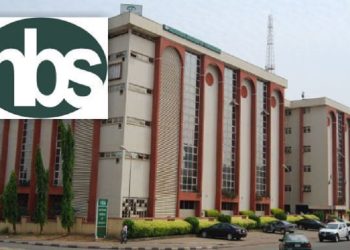The Nigerian banking sector has seen a significant boost in market capitalization, reaching N7.91 trillion at the end of trading on Friday, following the recent recapitalization initiatives led by several major banks. This represents a 27.19% increase since June, as banks intensify efforts to meet new capital requirements mandated by the Central Bank of Nigeria (CBN).
Thirteen major banks on the Nigerian Exchange Limited, including United Bank for Africa (UBA), Zenith Bank, and Access Holdings, have collectively gained N1.69 trillion in market cap since early June. Notably, the number of banks exceeding N1 trillion in market cap has doubled, with UBA and FBN Holdings joining GTCO and Zenith Bank in this category.
Market Impact of Recapitalization
Tunde Amolegbe, Managing Director of Arthur Stevens Asset Management Limited, explained that although banks haven’t yet fully allocated shares under the new capitalization, share prices have already responded positively due to market anticipation of enhanced growth potential. He pointed out that the increase in share price stems from the forward-looking nature of stock market valuations, with analysts predicting that higher capital will yield increased earnings.
Amolegbe noted, “The stock market is a forward pricing mechanism, and analysts have integrated this additional capital into their valuations, reflecting anticipated growth in earnings capacity.”
Future Market Projections
Analysts expect the market cap to continue its upward trajectory as recapitalization efforts finalize. Charles Sanni, CEO of Cowry Treasurers Limited, echoed these sentiments, noting that the recapitalization indirectly influences market cap by positioning banks for expanded business operations, translating into greater earnings potential. According to Sanni, “The recapitalization positions banks to leverage new capital, which is reflected in strong interim earnings and dividends released so far.”
Investor Sentiment and Market Performance
Last week, investor confidence in the financial sector drove a surge in bank stocks, with the banking index achieving a 7.86% week-on-week gain. Banks like UBA, FBNH, and Access Holdings were the week’s top performers, spurred by strong nine-month earnings reports, which fueled expectations of robust year-end performance.
Recapitalization Requirements and Timeline
Under the CBN’s new guidelines introduced in March, banks with international operations are required to increase their capital base to N500 billion, while national and regional banks must meet thresholds of N200 billion and N50 billion, respectively. Non-interest banks also face heightened capital requirements to fortify the banking system against market fluctuations.
The guidelines specify that capital will include only paid-up capital and share premiums, excluding other forms of shareholder funds. Banks are given a two-year window, from April 1, 2024, to March 31, 2026, to comply. Fidelity Bank was among the first to act, raising N127.1 billion in a highly successful public offer that exceeded initial targets.
This ongoing recapitalization effort is expected to strengthen Nigeria’s banking system, equipping institutions to support a projected N1 trillion economy by 2030 while enhancing financial inclusion and expanding service reach across various demographics.
As the recapitalization progresses, analysts anticipate a positive outlook for the banking sector, with continued growth in market capitalization and an increasingly resilient financial landscape.











